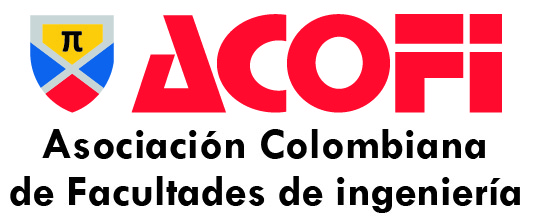Skills, active learning and reseach: a practical case in engineering
DOI:
https://doi.org/10.26507/rei.v1n2.41Keywords:
didactic, control education, inquiry, active learning, assessmentAbstract
During the past years a great deal of ideas, concepts, strategies, methodologies have been invading the field of engineering education: cooperative learning, problem based learning, active learning, project base learning, hands-on, meaning learning and intensive pedagogies, within many others. The scene gets complicated when the importance for developing engineer competences is emphasized, for which they must be defined, taught and then evaluated. Finally, completing this chaos, it is desirable to introduce information and communication technology. Then, a certain eclectic flavor seems to be invading engineering teaching. This paper presents an example of a course based on the inquiry concept. This approach could be a coherent conceptual frame work that allows the concatenation and selection of different pedagogical strategies. This work proposes a new conceptual framework for learning as a synthesis of two previous models.Downloads
References
ABET (2005). Criteria for accrediting engineering programs.
AMARAL, O. M., L. GARRISON, et al. (2002). «Helping English Learners Increase Achievement Through Inquiry-Based Science Instruction.» Bilingual Research Journal on line 26(2), pp. 213-239.
Assessment Reform Group (2002). Assessment Beyond the black box, Assessment reform Group.
Assessment Reform Group (2002). Assessment for learning: 10 principles; research-based principles to guide classroom practice, Assessment Reform Group.
BESTERFIELD-Sacre, M., L. SHUMAN, et al. (2000). «Defining the outcomes: a framework for EC-2000.» IEEE Transactions on education 43(2), pp. 100-110.
BLACK, P. and WILLIAM, D. (2001). Inside the black box: 14.
Board of Engineering Education, NRC (1995). Engineering education: design an Adaptive System, NAP.
FELDER, R. and R. BRENT (2002). Designing and teaching courses to satisfy engineering criteria 2000, Southeastern university and college coalition for engineering education.
FELDER, R. and R. BRENT (2004). The ABC’S of engineering educational: abet, boom´s taxonomy,cooperative learning, and so on. American Society for Engineering Education annual coference & Exposition, Salt Lake, Utah, USA.
FURTAK, E. M. (2005). Formative Assessment in K-8 Science Education: A Conceptual Review, Center for Education at the National Research Council - National Academies of sciences.
HARLEN, W. (2004). A systematic review of the evidence of the impact on students, teachers and the curriculum of the process of using assessment by teachers for summative purposes. U. o. L. Institute of Education, EPPI.
HEIN, G. and S. PRICE (1994). Active assessment for active science: a guide for elementary school teachers. Portsmouth, Heinemann.
HERNÁNDEZ, J. T., B. CAICEDO, et al. (2004). Formar ingenieros: un asunto de tradición o de ciencia. XXIV Reunión Nacional de Facultades de Ingeniería: El futuro de la formación en ingeniería, septiembre 22 a 24, Cartagena, Colombia.
KOLB, D. (1984). Experiencial learning: experience as The Source of Learning and Development. New Jersey, Prentice Hall.
LACHIVER, G. and J. TARDIF (2002). FOSTERING AND MANAGING CURRICULUM CHANGE AND INNOVATION. 32nd ASEE/IEEE Frontiers in education 2002, Boston.
National Academy of Engineering, NRC (2003). The engineering 2020: vision of engineering in the new century, NAP.
National Research Council, NAP (2000). How people learn: Brain, Mind, Experience, and school, National Academy Press.
National Research Council, NAP, Ed. (2000). Inquiry and the national science standards: a guide for teaching ands learning, National Academies Press, National academies.
National Research Council, N., Ed. (2000). Inquiry and the national science education standards: a guide for teaching ands learning, National Academies Press, National academies.
NOVAK, J. and B. GOWIN (1999). Aprendiendo a aprender, Ediciones Martinez Roca.
OEA (2005). Ciencia, Tecnología, Ingeniería e Innovación para el Desarrollo: Una Visión para las Américas en el Siglo XXI. Washington, OEA.
SALTIER, E. (2006). Methodological guide; Pollen Project. Inquiry-Based Science Education: Applying it in the Classroom. España, PAU Education.
SPITZER, M. (1999). The mind within the net: models of learning, thinking, and acting, Massachusetts Institute of technology.
STONE, M., V. BOIX, et al. (1998). Teaching for understanding: linking research with practice, Jossey-bass publishers.
VARGAS, F. and COLMENARES, J. E. (2006). Aprendizaje activo en ingeniería: metodologías, resultados y propuestas de implementación. Retos en la formación del ingeniero para el año 2020, XXVI Reunión Nacional de Facultades de Ingeniería, Cartagena, ACOFI.
VASCO, Carlos Eduardo (2003). Introducción a los estándares básicos de calidad para la educación. MEN – ASCOFADE (documento de trabajo).
WORTH, K. and EDC (2003). The sens. Boston, Kendall Hunt.
Downloads
Published
How to Cite
Issue
Section
License
Total or partial reproduction of the documents published in the journal is authorized only when the source and author are cited.
| Article metrics | |
|---|---|
| Abstract views | |
| Galley vies | |
| PDF Views | |
| HTML views | |
| Other views | |









